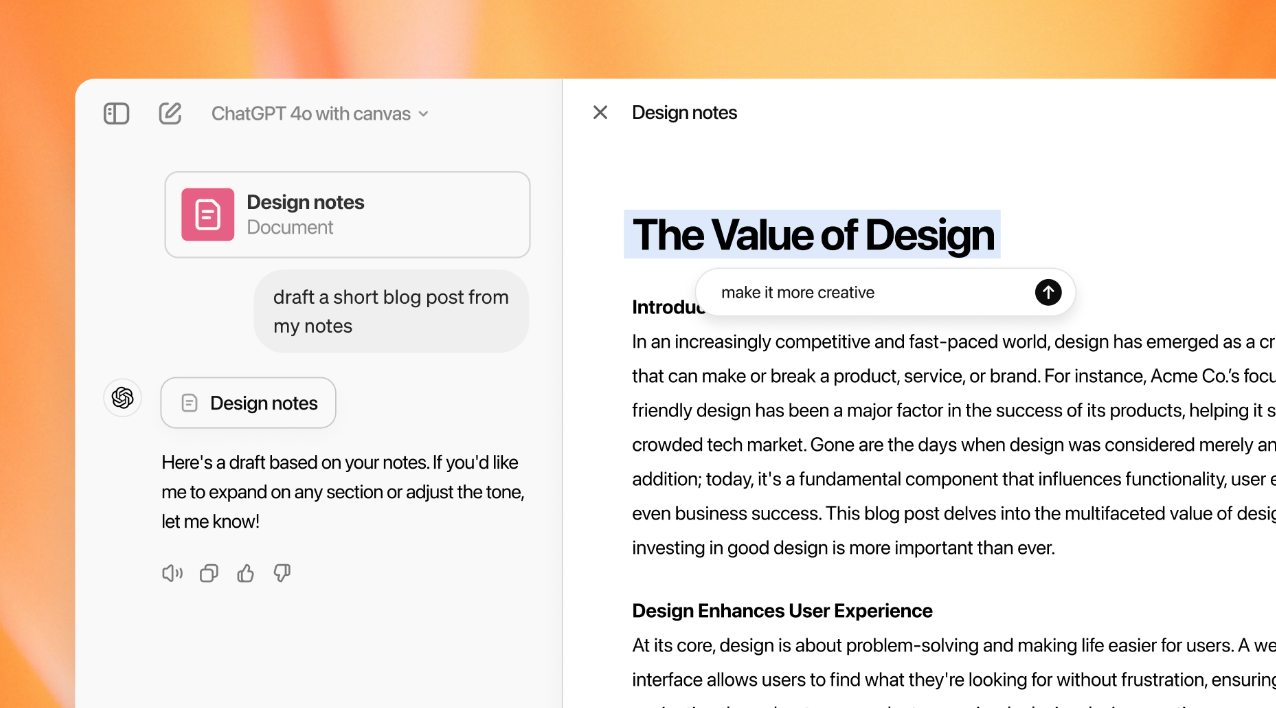OpenAI introduced a new way to interact with ChatGPT on Thursday: an interface it calls “canvas.” The product opens a separate window, beside the normal chat window, with a workspace for writing and coding projects. Users can generate writing or code directly in the canvas, then highlight sections of the work to have the model edit. Canvas will be available in beta to ChatGPT Plus and Teams users on Thursday, and to Enterprise and Edu users next week.
Several mainstream AI vendors are focusing on editable workspaces as a practical way to use generative AI. The new ChatGPT interface offers similar functionality to Anthropic's Artifacts, released in June, and viral coding companion Cursor OpenAI is looking to match competitors' services and is introducing entirely new features to ChatGPT to grow its paying user base. Today, AI chatbots can’t handle large projects from a single request, but they can often be a good starting point.
Editable workspaces like Canvas allow users to fix incorrect parts of an AI chatbot’s output without having to review their request and generate a whole new piece of code. “It’s just a more natural interface for collaborating with ChatGPT,” OpenAI product manager Daniel Levin said in a demo. In our demo, Levin had to select “GPT-4o with canvas” from ChatGPT’s model selection drop-down. Nevertheless, Openai says that canvas windows will simply jump when Chatgpt will find a separate workspace, it can be useful, for example, for longer outputs or complex coding tasks. You can also simply write "Canvas" to automatically open the project window. Levin has shown how the new Chatgpt function helps email.

The user provides Chatgpt to generate emails and jump over the Canvas window. Users can toggle a slider to adjust the length of the text, making it shorter or longer, and can also highlight specific phrases and ask ChatGPT to make changes, such as making them "more friendly" or adding emojis. Users can also ask ChatGPT to rewrite the entire email as is in another language.
The functions of the coding canvas are slightly different. Levin encouraged ChatGPT to create a Python web server API that appeared in the canvas window. When you click the “Add Comments” button, ChatGPT will add embedded documentation to explain the code in plain English. Additionally, you can highlight a section of the code generated by ChatGPT and ask the chatbot for clarification or ask questions about it. ChatGPT has also added a new "Review code" button that suggests specific changes to the code in the window (whether generated or user-written) for approval, self-editing, or rejection. Once you hit Accept, ChatGPT will try to fix the bug itself.

.png)


.png)
.jpg)
.jpg)
.jpg)
.png)
.png)
.png)